Featured
$50k ‘safe tourism licence’, $100 visa fee, virus testing: Maldives invites comments on tourism reopening proposals

Tourism authorities in Maldives have invited comments from industry stakeholders on draft guidelines, which — if finalised — will see the introduction of a $100 visa fee and mandatory on-arrival testing for coronavirus for all tourists when the island nation reopens its borders to visitors.
Draft guidelines published Tuesday by the archipelago’s tourism ministry say entry visa will be charged at $100 “until further notice” and will be issued only to tourists that have confirmed a minimum of 14 days’ stay at a single tourist facility with a “safe tourism licence”.
Before the Maldives closed its borders to visitors due to the coronavirus pandemic, it issued a 30-day free visa on arrival to tourists of all nationalities.
Meanwhile, tourists arriving in the Maldives will be required to present a medical certificate not older than seven days for antigen PCR test or 14 days for antibody test which confirms negative Covid-19 test findings.
But all tourists will still have to undergo PCR testing on arrival. The PCR test will cost $100 per person.
Vacant middle seat
Speedboats as well as aircraft carrying tourists to resorts and liveaboards from the airport will have to keep every alternate seat vacant.
On arrival at the resort, guests will be escorted directly to their rooms without waiting for check-in at the reception. Guests will be provided with an online check-in form to be completed in their rooms.
Guests will not be able to leave their rooms until they get the result of the coronavirus test done at the airport. It is hoped that the results will be provided within a maximum of 48 hours.
During the “quarantine period”, meals will be served directly to guest rooms.
After test results are received, guests can go out and enjoy all the facilities available at the resort, but they have to practise social distancing whilst interacting with other guests or employees. Tables at restaurants will also be set at a distance of at least two metres and buffet meals will not be served.
Mandatory protective gear
Airports are required to have disinfection procedures in place for body, luggage and travel documents of visitors.
All staff, including airport employees, resort representatives and luggage handlers, will be required to wear face masks and gloves at all times. Luggage trolleys will be disinfected after every use and kept separately.
Tourists will be required to wear face masks on arrival, at the airport and during the domestic transfer to the resort.
Just like at the airport, staff will be required to wear whilst welcoming guests to the resort. Employees will also have to keep a minimum distance of one metre when communicating with guests.
Similar requirements will apply to tourists that have booked stays with liveaboard vessels.
What is the ‘safe tourism licence’?
The draft guidelines restrict tourism activity to tourist establishments with a so-called safe tourism licence.
This licence will only be issued to resorts and liveaboards that pay $50,000.
The conditions that have to be met by the resorts and liveaboards to get the licence include:
- Allocate 10 per cent of registered guest rooms for isolation purposes.
- Allocate facilities for quarantining staff, equivalent to 10 per cent of total workforce
- Train guest service staff in the use of Personal Protective Equipment (PPE)
- Train staff in social distancing and disinfection procedures
- Emergency procedures in place to deal with suspected cases
- Adequate stock of medically certified PPE
- A resident doctor and nurse
Phased reopening
According to the guidelines, only resorts and liveaboard vessels that have the safe tourism licence will be permitted to open at first.
Guests can come to these tourist establishments either by private jet or superyacht from June 1, followed by charter and commercial flights a month later.
Charter flights and private jets will be charged a landing fee of $50,000. Superyachts will also have pay an entry fee fo $10,000.
Meanwhile, guesthouses and hotels will only be allowed to open from August.
There are no plans yet to allow cruise ships.
The tourism ministry expects the restrictions to be in effect until September “unless extended by the government”.
The ministry says the guidelines will only be finalised based on industry feedback.
“Ministry of tourism wishes to emphasise that this document is an initial draft and the government’s official policy will only be finalised and published after incorporating comments and suggestions from all industry stakeholders,” a statement read.
“We invite all concerned parties to highlight any concerns and to share their suggestions in relation to the procedures set forth by this document by emailing bureau@tourism.gov.mv before 25th May 2020.”
Maldivian officials have been bullish on their ability to contain the coronavirus outbreak and reopen the country in the third quarter of the year.
The government earlier formulated five scenarios with possible timelines for reopening borders and the tourism sector.
The best case scenario sees the country reopen borders by May, but the most likely scenario projects a July date for reopening the borders and restarting tourism in October. In the worst case, borders may only open by January 2021.
The coronavirus outbreak has hit the Maldivian economy hard, as travel restrictions and other preventive measures affect the country’s lucrative tourism industry, which contributes the bulk of the island nation’s state revenue and foreign reserves.
Before the pandemic, the government had been bullish about tourism prospects, targeting two million, high-spending holidaymakers this year after last year’s record 1.7 million.
However, tourist arrivals saw a year-over-year decline of 22.8 per cent in the first 10 days of March. Officials say the number of tourist arrivals to the Maldives could drop by half in 2020.
All international airlines have suspended scheduled operations to the Maldives, as the island nation enforced a blanket suspension of on-arrival visa in late March in a bid to combat the spread of the novel coronavirus.
Even before the visa suspension, the Maldives had closed its borders to arrivals from some of the worst-hit countries, including mainland China, Italy, Bangladesh, Iran, Spain, the United Kingdom, Malaysia and Sri Lanka. Visitors from three regions of Germany (Bavaria, North Rhine-Westphalia and Baden-Württemberg), two regions of France (Île-de-France and Grand Est) and two regions of South Korea were also banned from entering the country.
All direct flights to and from China, Italy, South Korea and Iran were also cancelled.
Cruise ships and foreign yachts were also banned from docking at any of the country’s ports.
With arrival numbers falling and the visa suspension in effect, several resorts across the Maldives had been closed.
Tourism has been the bedrock of the Maldives’ economic success. The $5 billion-dollar economy grew by 6.7 per cent in 2018 with tourism generating 60 per cent of foreign income.
However, the government is at present projecting a possible 13 per cent economic contraction this year — an estimated $778 million hit.
On March 8, Maldives reported its first cases of the novel coronavirus, as two hotel employees tested positive for Covid-19 at a luxury resort in the archipelago.
Eighteen more cases — all foreigners working or staying resorts and liveaboard vessels except five Maldivians who had returned from abroad — were later identified.
A six-case cluster of locals, detected in capital Male on April 15, confirmed community transmission of the coronavirus. Several more clusters have since been identified, bringing the total number of confirmed case in the Maldives to 1,106.
Four deaths have been reported and 80 have made full recoveries.
The Maldives announced a state of public health emergency on March 12, the first such declaration under a recent public health protection law.
The public health emergency declaration has allowed the government to introduce a series of unprecedented restrictive and social distancing measures, including stay-at-home orders in capital Male and its suburbs, a ban on inter-island transport and public gatherings across the country, and a nationwide closing of government offices, schools, colleges and universities.
Non-essential services and public places in the capital such as gyms, cinemas and parks have also been shut.
Restaurants and cafes in the capital have been asked to stop dine-in service and switch to takeaway and delivery.
A nationwide shutdown of all guesthouses, city hotels and spa facilities located on inhabited islands is also in effect.
Note: This article was updated at 9.42pm local time Tuesday to better reflect the draft nature of the proposals and to include comments made by the tourism ministry in its statement.
Cooking
Patina Maldives hosts Chef Shannon Bennett for exclusive April residency

From 1 to 5 April 2026, Patina Maldives, Fari Islands will host Shannon Bennett, one of Australia’s most recognised culinary figures and the creative force behind Belongil. The residency brings together a chef known for shaping dining as an emotional and reflective experience with a destination defined by perspective, creativity and purpose.
Bennett’s career extends beyond traditional notions of cooking. Through projects such as Vue de Monde and Belongil, he has explored dining as a medium for memory, connection and emotion, placing emphasis on experience rather than consumption. His approach centres on creating moments that remain with guests long after the meal has ended.
At Patina Maldives, the residency represents a convergence of shared values. Over five nights, guests are invited to take part in a limited series of dining experiences shaped by intention, curiosity and a sense of place. Rather than recreating Belongil in another setting, the programme evolves its philosophy, drawing inspiration from the natural rhythm and clarity of the Maldivian environment.
Commenting on the collaboration, Bennett said Belongil was conceived as more than a place to eat, but as a space for ideas, connection and lasting moments. He noted that Patina Maldives reflects a similar sense of purpose, adding that bringing his work into the island setting offered an opportunity to create experiences that feel grounded, honest and meaningful.
Patina Maldives continues to develop its identity by providing a platform for global creative voices to shape new conversations and perspectives. The residency with Bennett aligns with this approach, positioning cuisine as one element within a broader cultural and experiential narrative.
Tom Bray, Director of Lifestyle at Patina Maldives, said the resort exists to bring people closer to ideas, creativity and self-discovery. He added that welcoming Bennett reflects this philosophy, describing the residency as an experience designed to shift perspective rather than focus solely on gastronomy.
The residency is presented as an experience defined by intention rather than spectacle. Taking place over five nights on a single island, it brings together Patina Maldives and one of the culinary world’s most reflective minds for a programme shaped by presence, purpose and a sense of moment that cannot be replicated in the same way again.
Featured
You & Me Maldives unveils curated Premium All Inclusive programme
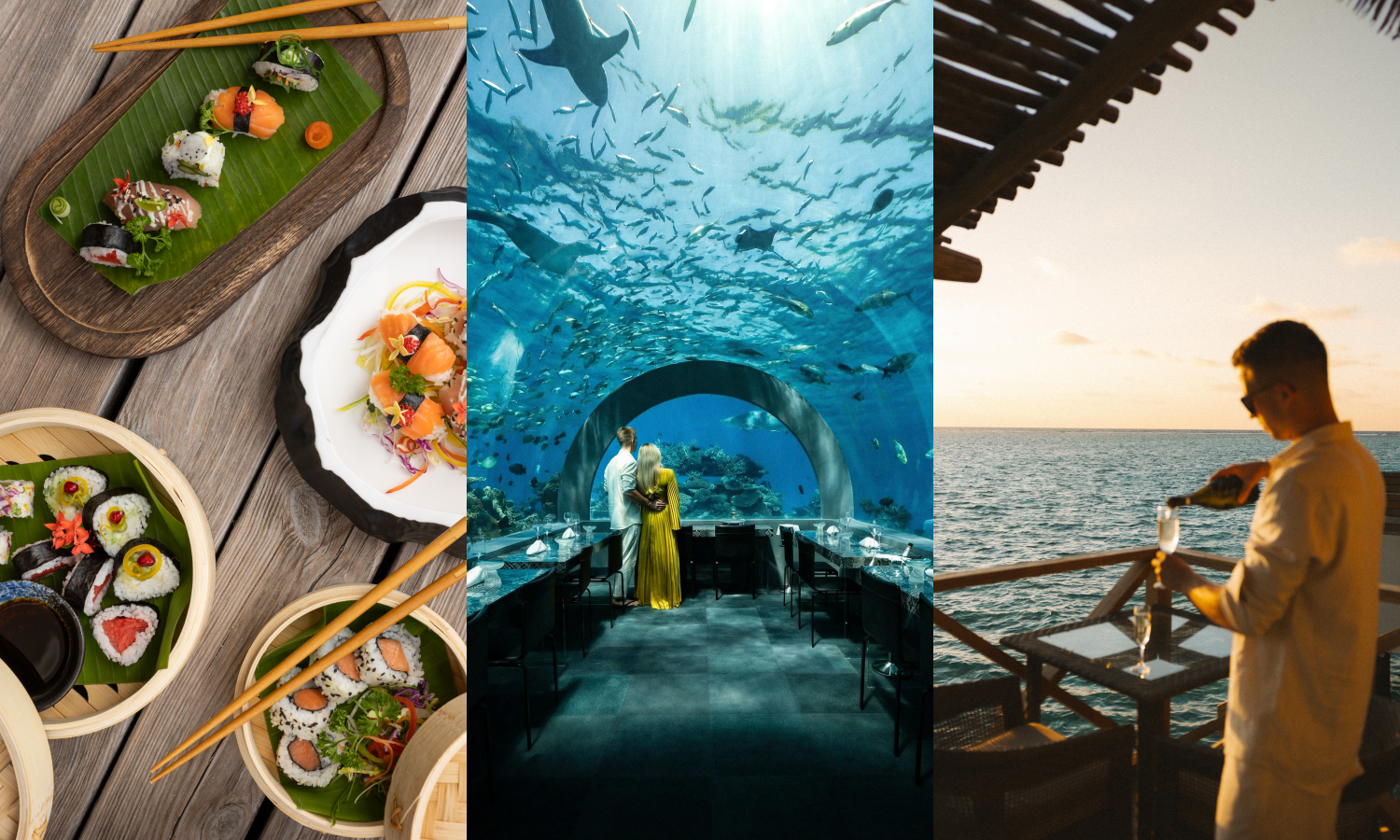
You & Me Maldives, the adults-only luxury retreat under The Cocoon Collection, has announced the launch of its new Premium All Inclusive experience, aimed at enhancing island stays through a more seamless and comprehensive offering in the Indian Ocean.
The Premium All Inclusive experience is designed to begin from the point of arrival. Guests receive complimentary access to The Cocoon Collection Lounge at the seaplane terminal at Velana International Airport, where services are provided to ensure a smooth transition before the journey to the resort.
On arrival at the island, guests are welcomed in their villas with a chilled bottle of sparkling wine and a selection of canapés. The Premium All Inclusive plan includes unlimited premium beverages by the glass, featuring a curated range of wines, signature cocktails, top-shelf spirits, international beers and non-alcoholic options. The in-villa minibar is replenished daily with soft drinks, international beers, red and white wines, as well as assorted snacks. For stays of five nights or more, guests also receive two bottles of premium liquor from a selected list, provided once during the stay.
The experience further includes a range of activities. Guests staying a minimum of three nights are offered one sunset cruise and one snorkelling excursion per stay, while those staying seven nights or more are entitled to a catamaran cruise. Unlimited use of snorkelling equipment and non-motorised water sports, including canoeing, kayaking and paddle boarding, is also included, subject to weather conditions.
Dining forms a central part of the Premium All Inclusive concept. Guests can enjoy three themed dining evenings, including a seafood barbecue under the stars featuring prawns, lobster and oysters. For stays of five nights or more, guests may also take part in a complimentary group cooking class, with a choice between ethnic or Italian cuisine, led by the resort’s culinary team.
Wellness offerings are also incorporated into the programme, with guests able to participate in up to three complimentary sunrise yoga sessions per stay, subject to availability.
The introduction of the Premium All Inclusive experience reflects the resort’s focus on personalised service and carefully curated stays. The offering is positioned to appeal to couples seeking relaxation, romance or activity-led experiences within an adults-only island setting.
Featured
Eid celebrations at SO/ Maldives blend Arabic tradition and Maldivian culture

SO/ Maldives is inviting global travellers this season to reimagine Eid not merely as a holiday, but as an immersive island escape. Located just 15 minutes by speedboat from Malé, the fashion-forward private island retreat sets the stage for a celebration where cultural heritage, contemporary luxury and tropical glamour come together.
At the centre of the festivities is an authentic culinary experience at Hadaba, the resort’s award-winning Arabic restaurant. Guests are offered Levantine flavours, artisanal mezze and traditional recipes presented with a modern approach, creating a setting for shared dining and celebration. As part of the resort’s dine-around concept, Hadaba can be included in a wider culinary journey across the island, allowing guests to experience Arabic cuisine alongside the resort’s other dining venues.
As evening falls, celebrations move to Lazuli Beach Club, where shisha rituals and Arabic-inspired refreshments are served in a beachfront setting. Traditional performances are complemented by Maldivian Boduberu drumming and fire dance displays, creating a cultural programme designed to appeal to international travellers seeking meaningful experiences.
Across the island, Eid is marked through a series of curated activities aimed at encouraging connection and creativity. Cultural workshops, including palm-leaf artistry and henna sessions, offer opportunities to explore heritage, while younger guests are engaged through themed crafts, interactive games and sweet treat decorating. The overall atmosphere remains celebratory while maintaining a relaxed pace that reflects the resort’s character.
Beyond the festive programme, the resort positions the long weekend as a fully immersive island retreat. Guests stay in beach and overwater villas featuring private pools and ocean views, with interiors inspired by high fashion. Time is spent between spa treatments, lagoon activities, beach club experiences and sunset dining, balancing celebration with seclusion.
To mark the season, the resort has introduced two limited-time stay offers. The One Night on Us offer provides savings of 33 per cent on stays of three nights or more, along with daily breakfast, complimentary transfers and spa privileges. The Soo Summer package offers preferential rates combined with spa experiences, curated dining inclusions and additional benefits for water villa stays.
Welcoming travellers from Europe, Asia, the Middle East and beyond, the resort presents Eid as a global celebration where Arabic traditions, Maldivian culture and contemporary design are brought together. This season, guests are invited to exchange routine for island surroundings and experience Eid through a redefined island perspective.
-
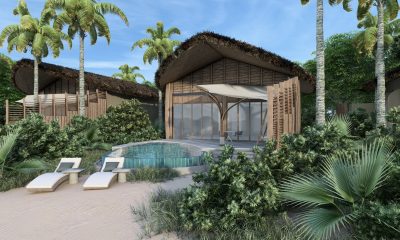
 News1 week ago
News1 week agoPulse Hotels & Resorts unveils Aura Maldives, a mindful luxury sanctuary
-
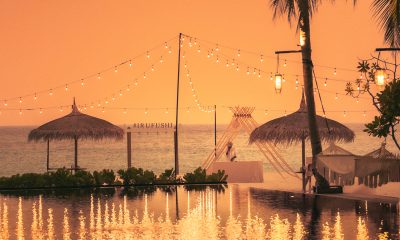
 News1 week ago
News1 week agoSun Siyam Iru Fushi sets new nenchmark with 24 Hour Premium All Inclusive Dine Around
-
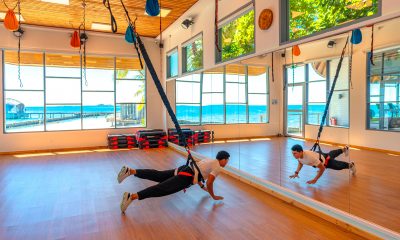
 Fitness1 week ago
Fitness1 week agoOUTRIGGER Maldives Maafushivaru launches expanded wellness programming for 2026
-
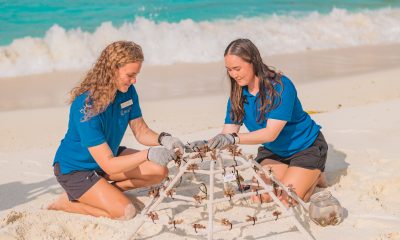
 Action1 week ago
Action1 week agoSheraton Maldives Full Moon celebrates sixth anniversary of Reefscapers collaboration
-
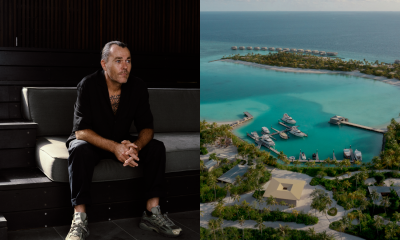
 Cooking1 week ago
Cooking1 week agoPatina Maldives hosts Chef Shannon Bennett for exclusive April residency
-
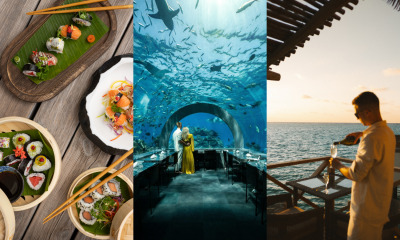
 Featured1 week ago
Featured1 week agoYou & Me Maldives unveils curated Premium All Inclusive programme
-
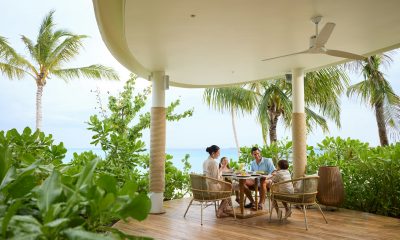
 Awards1 week ago
Awards1 week agoCentara Mirage Lagoon Maldives named Luxury Family Friendly Resort of the Year
-
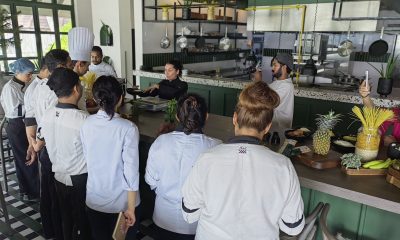
 Cooking1 week ago
Cooking1 week agoSun Siyam Olhuveli hosts Italian Chef Francesca Gambacorta at Milano restaurant















